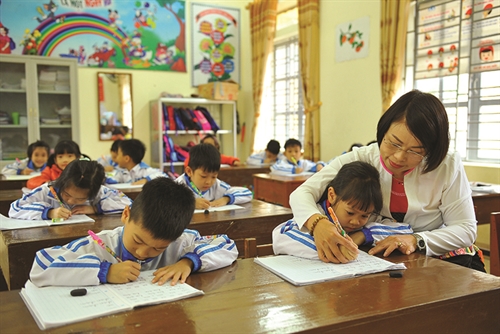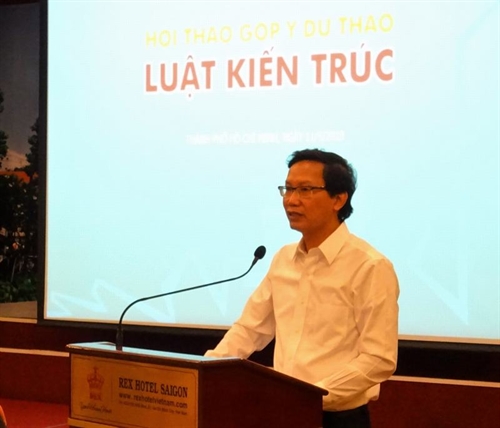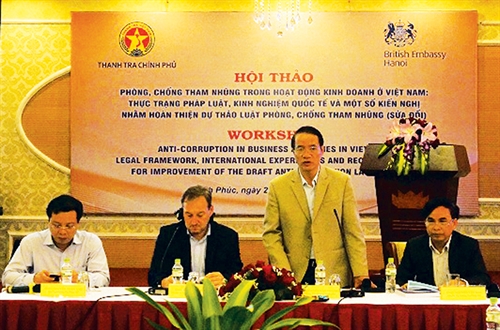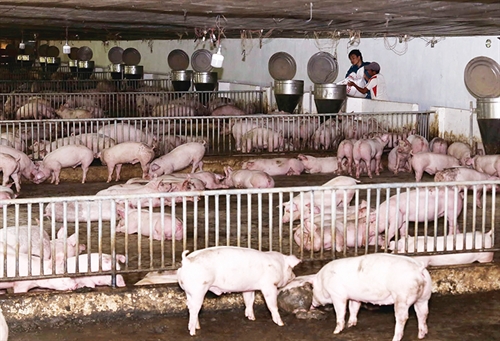Passed this June and effective from July next year, the Education Law (the Law) provides a legal framework for improving the national education system to be open associated with building a learning society.
Consisting of nine chapters with 115 articles, the Law prescribes the national education system, education institutions, teachers and learners, and state management of education. It also defines the rights and responsibilities of agencies, organizations and individuals engaged in educational operations.
The Law supersedes its predecessor enacted in 2005 (the 2005 Law) with revisions made in 2009, 2014 and 2015.
Compared to the 2005 Law, the Law has many new provisions.
National education system
Under the Law, the national education system is an open and permeable system, consisting of formal education and continuing education.
Education and training levels of the national education system include early childhood education, general education, vocational education, and higher education.
Specifically, early childhood education includes nursery education and preprimary education; and general education consists of primary education, lower secondary education, and upper secondary education. Meanwhile, vocational education provides training at elementary, intermediate and collegial levels and other vocational training programs; and higher education provides training at bachelor’s, master’s and doctor’s levels.
 |
| Nguyen Thi Hang, an outstanding teacher of the Muong ethnic minority group, guides her students how to improve their handwriting__Photo: Minh Duc/VNA |
Clarification of permeability, career orientation and streaming in education
The Law adds a provision on the framework structure of the national education system and the Vietnamese qualifications framework to facilitate the permeability among education and training levels of the national education system. The framework structure of the national education system specifies education and training levels of the national education system while the Vietnamese qualifications framework regulates qualification levels and outcome standards of different education and training levels. Regarding this framework, the Law only prescribes principles and assigns the Prime Minister to prescribe in detail the minimum training time and standards for each training level and the minimum learning volume for each level of vocational education and higher education.
The Law devotes Articles 9 and 10 to defining permeability, career orientation and streaming in education.
As assigned by the Law, the Government will provide in detail career orientation and streaming in education in each period to satisfy socio-economic development requirements, and the permeability among education and training levels of the national education system.
Investors in of education
As per the Law, investor means an organization or individual that makes investment in the field of education with non-state budget funds.
According to Article 54 of the Law, investors that make investment in education include domestic individuals holding Vietnamese citizenship and organizations established under Vietnam’s law, and foreign investors being individuals holding foreign citizenship and institutions established under foreign laws.
Investors have the following rights and responsibilities:
- Approving school development plans proposed by the school council;
- Deciding on their total capital contributions, investment projects on development of the school, mobilization of investment capital (if any), plans on the use of differences between annual revenues and expenditures or plans on handling of losses of the school; and approving annual financial statements of the school;
- Electing, appointing, removing from office, or relieving from duty members of the school council;
- Organizing supervision and evaluation of operation of the school council;
- Issuing and amending the school’s financial regulation; and approving contents concerning finance and assets in the school’s organization and operation regulation;
- Contributing funds in full and on time and supervising the contribution of funds to the school under the scheme on the establishment of the school;
- Handling violations of the school council which cause damage to the school in accordance with law and the organization and operation regulation of the school;
- Deciding on the reorganization or dissolution of the school; and,
- Publicizing on the school’s website the list of organizations and individuals contributing investment capital to the school.
Noticeably, investors establishing not-for-profit private schools will be rewarded for their contribution of investment capital to establish, build and develop the school.
In addition, in order to make a clear distinction between investors’ economic activities and schools’ professional activities in line with international practices, the Law has a new provision on establishment of private education institutions. Accordingly, when wishing to establish a private education institution, an investor may either establish an economic institution in accordance with the Law on Investment and Law on Enterprises for the economic institution to establish a private education institution, or directly establish a private education institution in accordance with this Law.-









